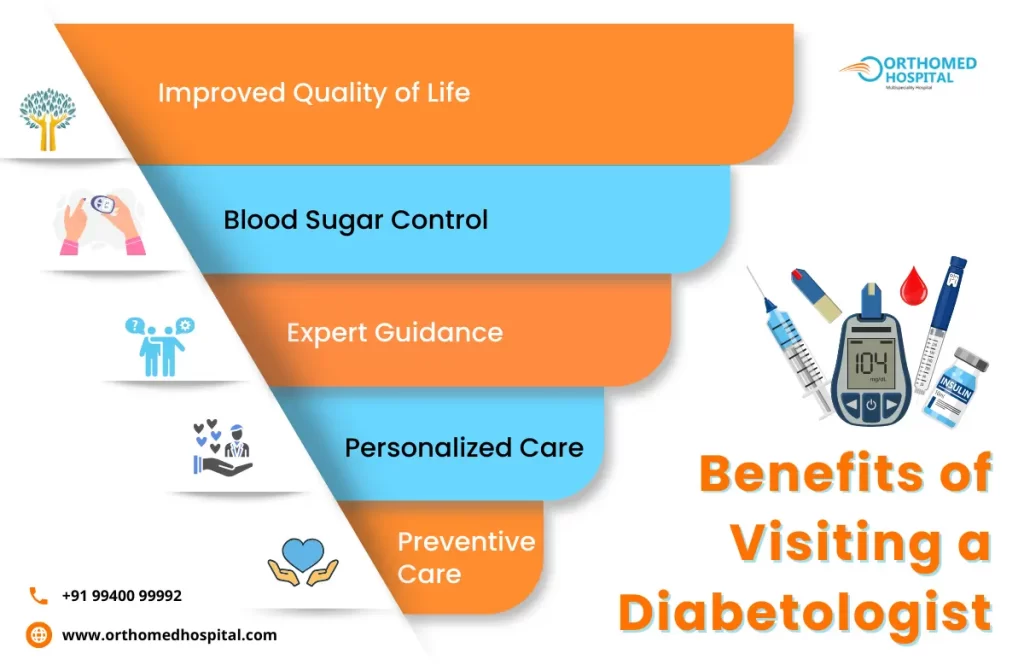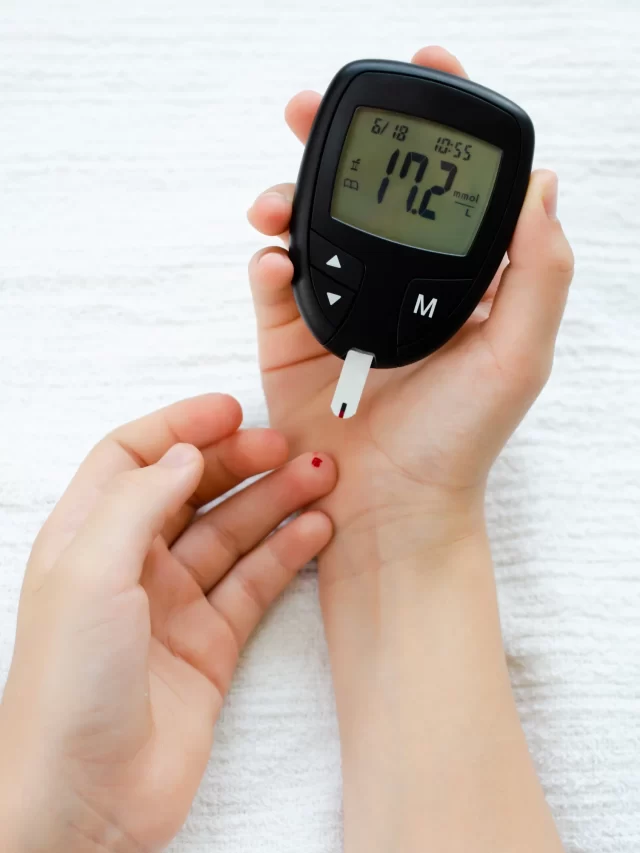A diabetologist is a specialized medical doctor who focuses on the diagnosis, treatment, and management of diabetes and related metabolic disorders. You can find the best diabetologist in Chennai who are dedicated to helping individuals manage their diabetes and improve their overall well-being.
When to Consult a Diabetologist?
Patients should consider consulting a diabetologist in Chennai in the following situations:
1. Diabetes Diagnosis: If you’ve been newly diagnosed with diabetes, it’s essential to consult a diabetologist to understand the condition, its implications, and how to manage it effectively.
2. Uncontrolled Blood Sugar: If you are already living with diabetes and have difficulty in controlling your blood sugar levels, a diabetologist can help adjust your treatment plan.
3. Gestational Diabetes: Pregnant women diagnosed with gestational diabetes need specialized care from a diabetologist to ensure a healthy pregnancy and baby.
4. Complications: Diabetes can lead to various complications, such as neuropathy, retinopathy, or kidney problems. Regular visits to a diabetologist are crucial for preventing and managing these complications.
5. Medication Adjustments: If you require changes in your diabetes medications or insulin regimen, a top diabetologist in Chennai can provide guidance.
6. Lifestyle Changes: Diabetologists can offer advice on diet, exercise, and lifestyle modifications to help you manage diabetes effectively.

Conditions Treated by Diabetologists
A leading diabetologist in Chennai diagnoses and treats a range of conditions, including:
- Type 1 Diabetes: An autoimmune condition where the immune system attacks insulin-producing cells in the pancreas, leading to insulin dependency.
- Type 2 Diabetes: A metabolic disorder characterized by insulin resistance and high blood sugar levels, often associated with lifestyle factors.
- Gestational Diabetes: A temporary form of diabetes that can develop during pregnancy, requiring careful management for the health of both the mother and baby.
- Prediabetes: A condition where blood sugar levels are higher than normal but not yet in the diabetic range. Diabetologists can help prevent the progression to type 2 diabetes.
- Diabetic Complications: Diabetologists manage complications such as diabetic neuropathy, retinopathy, nephropathy, and cardiovascular issues.
Diagnostic Tests
The top diabetologist in Chennai may use several diagnostic tests, including:
- HbA1c Test: Measures average blood sugar levels over the past few months.
- Fasting Blood Sugar Test: Checks blood sugar levels after an overnight fast.
- Oral Glucose Tolerance Test (OGTT): Evaluate how your body handles sugar after consuming a glucose solution.
- Continuous Glucose Monitoring (CGM): Provides real-time data on blood sugar levels throughout the day.
Treatment Procedures
The best diabetologist in Chennai offers a range of treatment options, including:
- Medications: Prescribing oral medications or insulin as needed to regulate blood sugar.
- Lifestyle Modification: Offering dietary recommendations, exercise plans, and stress management techniques.
- Monitoring: Regularly tracking blood sugar levels to make necessary adjustments to the treatment plan.
- Diabetes Education: Providing patients with knowledge and skills to self-manage their condition effectively.
- Preventive Care: Offering guidance on preventing complications through regular check-ups and screenings.
Factors to Consider to Choose a Diabetologist
When choosing a diabetologist, several important factors should be considered to ensure you receive the best possible care for your diabetes management:
- Qualifications: Ensure the top diabetologist in Chennai has proper training and certifications in diabetes care.
- Experience: Look for a diabetologist with a history of successfully treating patients with diabetes.
- Location: Consider the convenience of the clinic’s location.
- Insurance: Check if the diabetologist accepts your insurance to minimize costs.
- Recommendations: Seek feedback from other patients or healthcare professionals.
- Communication: Ensure the diabetologist can explain medical information clearly.
- Treatment Approach: Inquire about their approach, including lifestyle and holistic considerations.
- Availability: Confirm their availability for appointments and emergencies.
- Support Team: Consider the availability of nurses, dietitians, and educators.
- Technology: Assess the clinic’s technology for diabetes management.
- Cost: Understand the fees for consultations and tests.
- Patient Education: Look for a diabetologist in Chennai who prioritizes patient education for effective self-management.
Benefits of Visiting a Diabetologist in Chennai
Consulting a diabetologist in Chennai offers numerous benefits, including:
- Expert Guidance: Diabetologists specialize in diabetes management, ensuring you receive the most up-to-date and effective treatment.
- Blood Sugar Control: Proper management can help control blood sugar levels and reduce the risk of complications.
- Improved Quality of Life: Diabetologists help you lead a healthier and more active life despite diabetes.
- Personalized Care: Treatment plans are tailored to your unique needs, considering factors like age, lifestyle, and other medical conditions.
- Preventive Care: Regular check-ups with a diabetologist can help detect and address issues early, preventing long-term complications.
Conclusion
To conclude, consulting a diabetologist in Chennai at Orthomed Hospital is paramount for those grappling with musculoskeletal and autoimmune ailments. So, it is advisable not to delay seeking the expertise of a diabetologist for a healthier future.
Read also Rheumatologist in Chennai.


